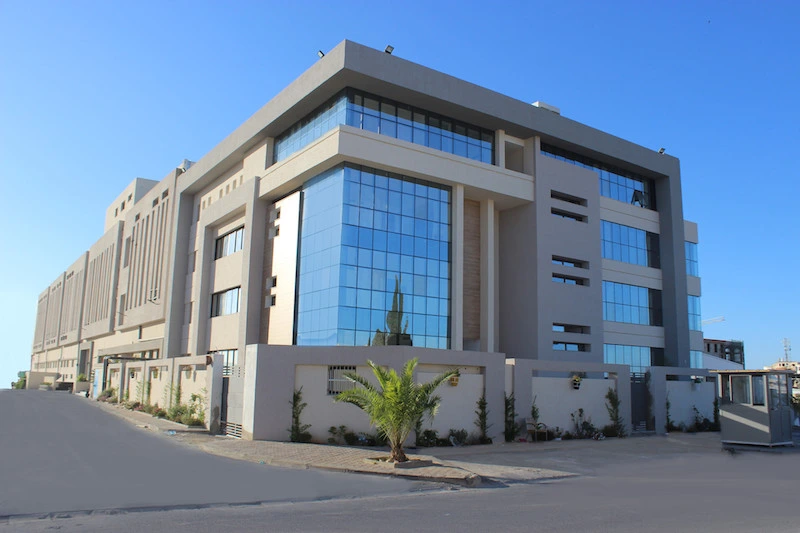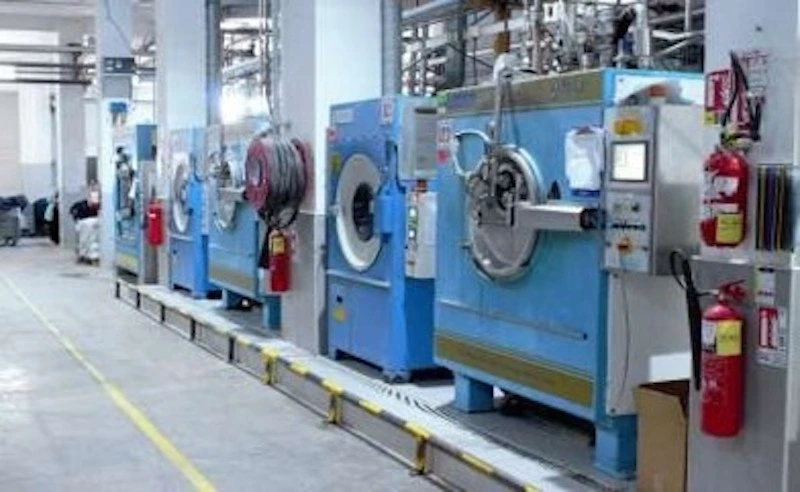In this exclusive interview, we have the privilege of speaking with Mr. ZARRAD Mounir, the Commercial and Marketing Director of Denim House, a leading player in the Tunisia textile industry.
We delve into Denim House’s journey, from its inception as part of the SARTEX Group in 1983 to its transformative growth in 2015. Over the years, Denim House has emerged as a leader, earning trust and recognition from renowned brands, thanks to its skilled team, sustainable practices, and commitment to producing high-quality products.
Join us as we explore Denim House’s diverse product range, its pivotal role in Tunisia’s denim manufacturing sector, and its strategic position as a key denim exporter in North Africa.
A Journey of Growth and Success within the SARTEX Group
Denim House is part of the SARTEX Group which was founded in 1983. The year 2015 was a changing point for our company with the implementation of Denim House for all the purchasing, storing, planning, cutting and sewing with the Sartex site specialized in the dyeing washing and finishing department. Together, they cover the full manufacturing process – from sourcing and design to the packaging of the final product.
Sartex group started with only 27 employees to reach over 5000 employees by 2023, having 2nd & 3rd generations joining our company and creating a family-like work environment.
In 2023 we reached a historical record of 5 million pieces manufactured in our site. Throughout the years Denim House became a leading partner in the textile sector not only in our country but also internationally and especially in the EMEA region gaining the trust of many known brands thanks to our qualified team, sustainable process and high-quality products.

One-Stop Solution for High-Quality Jeanswear Manufacturing
DH specialises in the manufacturing of Jeanswear and sportswear: bottoms, garments, chino, cargo, jackets and overalls. Vertically integrated from design to pattern, cutting, sewing, washing and finishing. DH can adapt to any client requests thanks to the cutting-edge machines we have and to our experienced development and design team, we are also able to work on a big range of styles from simple 5pkts to complex fashion styles with special finishing.
The Thriving Denim Manufacturing Sector in Tunisia:
The denim manufacturing sector in Tunisia has witnessed significant growth in recent years. The country’s strategic location, skilled workforce, and proximity to European markets have made it an attractive destination for textile and apparel production.

Tunisia has become one of the leading denim exporters in North Africa. Tunisia will be the 4th jeans supplier to Europe in 2021 with a total value of over 300 million euros, the equivalent of 17 million pieces with a market share of 9% of the European market.
The Tunisian market presents many pros for our international partners:
* Geographical positioning in the Mediterranean and the proximity to all the countries.
* Preferential trade agreements with Europe also known as the free trade agreements.
* Open-minded culture, easy integration and fast adaptability to the client’s needs.
* Short manufacturing lead time between 5 and 6 weeks.
* Respect for international social and environmental norms.
* Adaptability to new innovation, digitalization and new technologies.
As per global denim production and trade, it remains a thriving industry, with a growing demand for sustainable and ethically produced denim products.
Serving Clients Worldwide – From Europe to the Americas and Asia
Our company is 100% an exporting company meaning all of our clients are international clients. Our main destinations are 18 countries in total which are mostly located in Europe with 75% We also have a growing presence in the East and North America especially the USA with 15% and 10% for Asia, licensees and latin America.
The Textile and Denim Industry’s Path to Sustainability and Innovation in 2023
Even though the current situation is a little bit blurry due to many international challenges such as COVID-19, war, inflation, economic difficulties, climate change etc.. the global textile and apparel industry, particularly the denim sector, is facing a setback during 2023 and hoping to resume to its level of growth by the end of 2024.
Sustainability will play a pivotal role as consumers become more conscious of their choices. We anticipate increased demand for eco-friendly and ethically produced denim products. Technological advancements, such as digitalization and automation, will also reshape the industry, improving efficiency and reducing waste.

Denim House’s Commitment to the Future
Denim House is committed to staying at the forefront of the industry. We are constantly innovating and investing in research and development to create cutting-edge denim products with the most sustainable processes: increasing automation, reducing manual work, reducing water and energy consumption and all kinds of waste.
One of our latest projects is about 3D collections design services for all products; clothes collections, fabrics etc. for digital artists, game developers, designers, hobbyists, and all professionals seeking high-quality 3D assets for their projects.
Denim House’s Dedication to Sustainable Practices
Sustainability is of essence to Denim House. Our sustainability policy encompasses every aspect of our operations, from sourcing eco-friendly materials to reducing water and energy consumption in our production processes.
We have implemented a water treatment and recycling station with a capacity of 1600m3 over 3000m² surface reusing 85% of our used water and reducing COD by 87%, BOD5 by 91% and TSS by 99% and of course reducing chemical usage, investing in laser machines for more sustainable process, low energy consuming machines and currently working on providing the plant with solar power after successfully implementing a pilot project that we plan on scaling it on our sites.

Tunisia’s Textile Industry and Its Renewed Promise
The reason behind that is the strong historical connections with our European partners that go way back in time, One of the many other reasons is the denim culture that Tunisia acquired for decades and the interactions we had with all our partners, denim experts, brands, designers and brands.
The Tunisian government has provided incentives, and educative training for the textile sector, including preferential trade agreements and investment incentives. They have recognized the industry’s potential for job creation and economic growth and have supported its development.
Even though it sustained setbacks in the previous years due to many external reasons now it’s starting to come back stronger, focusing more on the textile sector and acknowledging its importance to our country, reviewing many laws to support the textile sector to thrive thanks to the efforts of many national organizations such as the CETTEX (Textile Technical Center), CEPPEX (Export Promotion Center), FTTH (Tunisian Federation for Textile and Clothing) and international GIZ, USAID, who are very active in Tunisia.
Denim House’s Commitment to Quality and Sustainability
Denim House holds several certifications to validate our product quality and sustainability efforts. These include mainly GOTS (Global Organic Textile Standard), GRS (Global Recycled Standards), OCS (Organic Content Standard) as well as ISO14001 & ISO 45001 and many others such as BSCI (Business Social Compliance Standard), SMETA SEDEX, fair labor etc..

Our Commitment and Vision for a Brighter Future
We would like to emphasize our commitment to producing denim products that not only meet the highest quality standards but also contribute to a more sustainable and responsible future.
Denim House is dedicated to being a leader in environmentally conscious denim manufacturing, and we welcome partnerships and collaborations to drive positive change in the textile industry. We thank our customers and stakeholders for their continued support and we look forward to a bright future for denim.



















